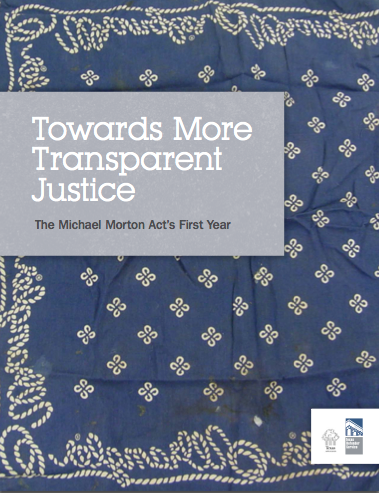Publications
(from the archives) In the Supreme Court of Texas, Texas Taxpayer and Student Fairness Coalition v. Michael Williams, Commissioner of Education
August 11, 2015
Texas Appleseed joined the national Education Law Center and these Texas-based organizations — Center for Public Policy Priorities, Mexican-American School Board Members Association, San Antonio Hispanic Chamber of Commerce, Texas Association for Bilingual Education, Texas HOPE, and Texas NAACP — on the amicus brief.
Issue: The brief is in support of the state's economically disadvantaged and English Language Learner (ELL) students in the Texas Supreme Court, urging the Court to affirm the trial court's ruling in "Texas Taxpayer and Student Fairness Coalition v. Williams." Adequate school funding leads to better educational outcomes for economically disadvantaged, at-risk and ELL students. The trial court in this case properly analyzed the Texas school finance system as applied to economically disadvantaged students and ELLs in holding the system inadequate and unsuitable for those student groups, consistent with the rulings of many state courts across the country faced with similar evidence of deprivations of essential education resources and outcomes.
Background: After the state legislature and governor cut funding for Texas public schools by $5.4 billion in 2011, a number of plaintiff groups filed separate cases against Texas officials and the State Board of Education. The court consolidated these cases under the caption "Texas Taxpayer and Student Fairness Coalition v. Williams." More than 600 Texas school districts educating 75 percent of the state's five million public school students joined the cases. After the trial court heard evidence in nearly four months of testimony, it declared the current Texas school funding system unconstitutional on August 28, 2014. The state appealed to the Texas Supreme Court, and the parties are in the process of filing their briefs. Oral argument is scheduled for September 1, 2015.
Fourth edition. Texas Appleseed, Texas Tech University School of Law. With generous support from Hogg Foundation for Mental Health
(from the archives) Towards More Transparent Justice: The Michael Morton Act's First Year
April 2015
By Texas Defender Service and Texas Appleseed. On Jan. 1, 2014, the Michel Morton Act took effect -- the first time in Texas history that criminal defendants have a statutory right to review the State’s evidence against them without a court order. This enactment instilled transparency into the criminal justice system, and ensured that the defense may acquire information necessary to: evaluate the charges against the accused, locate and preserve evidence that is favorable to the defendant, and make an informed decision about how to proceed. The following report is an evaluation of the Act’s implementation during its first year.
Pages
Criminal Discovery
Fair Defense Act
Immigrant Banking
Immigrant Children & Families
International Remittances
Mental Health
Protecting Seniors from Financial Abuse
Bail Reform & Pretrial Justice
Civil Asset Forfeiture
Coerced Debt
Debt Collection
Disaster Recovery & Fair Housing
Education Justice
Fair Financial Services
Fines & Fees
Foster Care & Courts
Homeless Youth
Insurance
Juvenile Justice
Other Issues
Payday & Auto Title Lending Reform
E-bulletins
Testimony
Handbooks
Amicus briefs
Newsletters
Brochures
Reports









